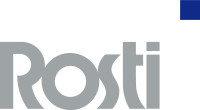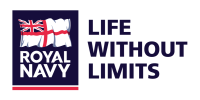Foundation Curriculum Intent
Our Y9 curriculum sets out the foundational substantive and procedural knowledge that will be developed in KS4.
Content and concepts Do pupils know more of an expanding domain of content about religion, including non-religious traditions?
Although contested and debated, content choices set out the ‘journey’ of the curriculum. These may be grouped in different ways, but do contain:
- Knowledge that builds up pupils’ concept of what religion is
- Specific religions & non-religious worldviews, e.g: Abrahamic: Judaism, Christianity, Islam Dharmic: Hinduism, Buddhism, Sikhism NRWVS: e.g. Humanism
- Acknowledgement of the ‘fuzziness’ between religions (the boundaries are not always fixed!)
- Acknowledgement of diversity within religions and non-religious worldviews
- Attention to a range of RE concepts: Concepts specific to particular traditions, e.g. ‘covenant’ in Judaism; ‘atman’ in Hinduism; ‘incarnation’ in Christianity’ Concepts which enable understanding of religion generally, e.g. ‘worship’/‘pilgrimage’ Pertinent human concepts, e.g. ‘authority’
- Sufficient encounters with concepts in religious stories, texts, festivals, traditions, testimonies or doctrines for pupils to build ‘mental models’ of such concepts
- Sufficient breadth to equip pupils with a range of mental models of contrasting religions, and thus the complexity and diversity of religion
- Sufficient depth to enable pupils to make sense of distinctive worldviews in depth (e.g. ‘salvation history’ in Judaism, Christianity and/or Islam) Remember: Ed Act 1996 Section 375(3): the curriculum should reflect the fact the religious traditions in GB are in the main Christian whilst taking into account the teaching and practices of the other principal religions represented in Great Britain.
Students read collaboratively as a class where reading fluency is modelled by the teacher, but also independent reading for pleasure is provided for in each lesson so students get into positive ‘habits of reading’ where they can eventually actively seek out various genres etc. independently. Barriers to reading independently are tackled in this year through 1:1 bespoke Thinking Reading intervention, and through the teacher supplying students with accessible texts.
Foundation Core Curriculum Covered
Disciplinary knowledge: methods ’ways of knowing’ Disciplinary knowledge: ’personal knowledge’ Scope: knowledge in RE Does the RE curriculum pay meaningful attention to ‘categories of knowledge’ in RE?
▪ Substantive content and concepts (1)
▪ Disciplinary knowledge: methods (‘ways of knowing’) (2)
▪ Disciplinary knowledge: personal (’personal knowledge’)
(3) Does the RE curriculum develop pupils’ knowledge about the ways in which knowledge of religions is formed? Pupils will encounter a range of different claims from within religion (e.g. ‘the Qur’an was revealed to the Prophet by the Angel Jibril’ in Islam) or about religion (e.g. ‘Europe is becoming more secular). The curriculum ought to equip pupils with:
- Knowledge of how claims came about (e.g. on the basis of an interpretation of a holy book? On the basis of an historical account? On the basis of tradition? On the basis of family or social customs?)
- Knowledge of different scholarly methods for studying religion (e.g. logical argument in philosophy; qualitative analysis in the social sciences; interpretation in theology). The subject content will require the right ‘tools for the job’. Knowledge of these ‘tools’ is knowledge of methods
When pupils try to make sense of religion and worldviews, they do so from a position. Everyone has ‘lenses’ through which they see the world (values, experiences, habits, dispositions.) The curriculum ought to build:
- Pupils’ self-knowledge (selfawareness) of the assumptions they bring when they think about religion. (e.g. when studying ‘loyalty’ and ‘duty’ in Hinduism, contrasting the assumptions pupils have about loyalty and duty with how they appear in Hinduism).
- Pupils’ personal knowledge of their own position (e.g. pupils who consider themselves ‘notreligious’ can consider the ways they embrace secularism or humanism.) Note: This is NOT the same as pupils sharing opinions uncritically
Mutually Beneficial Curriculum Connections
Religious studies supports English and PD as well as the Humanities
Wider reading improves reading ages and thus benefits all disciplines.














